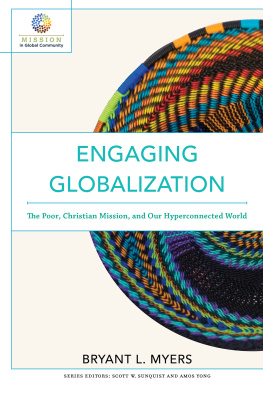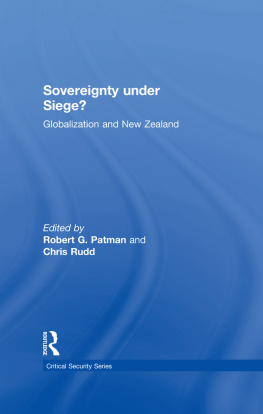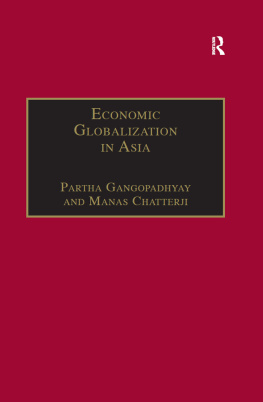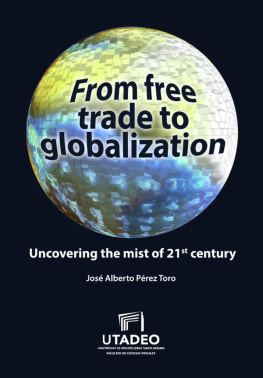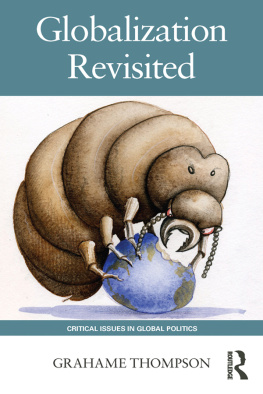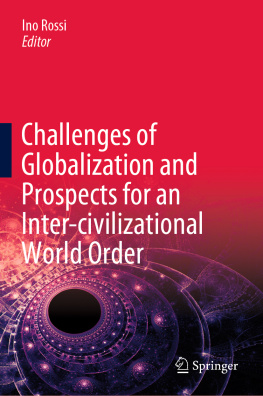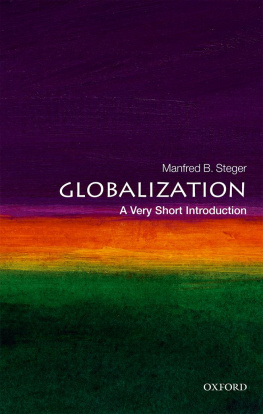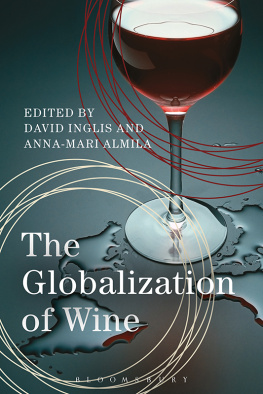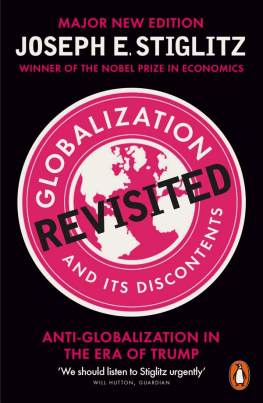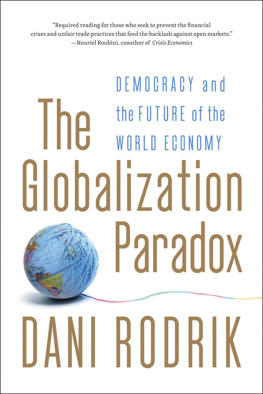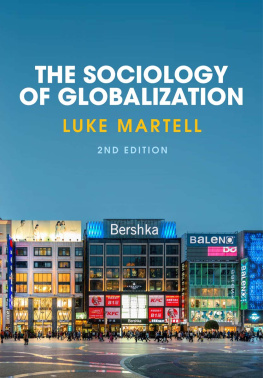Contents
Guide
Pagebreaks of the print version
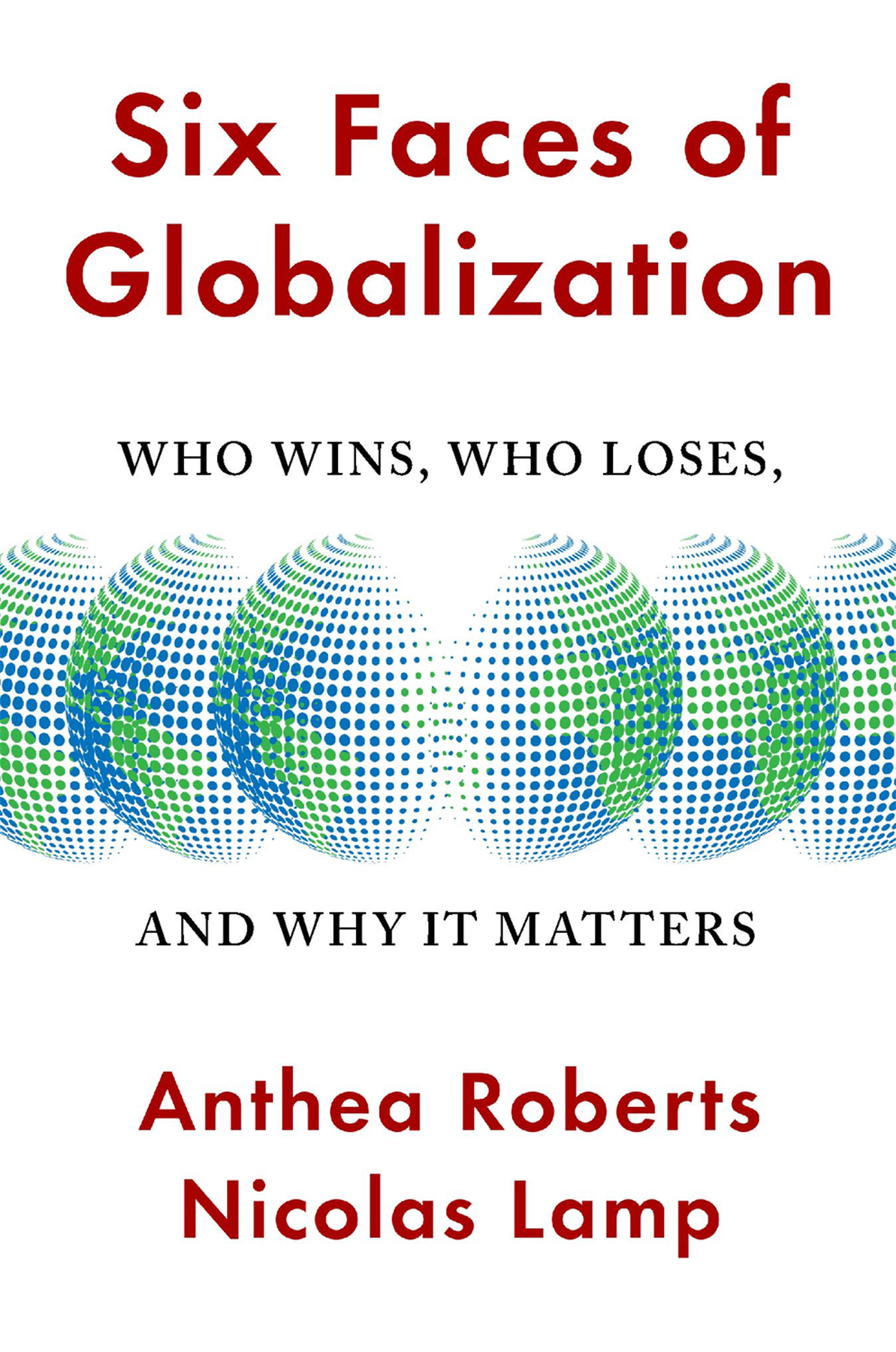
Six Faces of Globalization
WHO WINS, WHO LOSES, AND WHY IT MATTERS
Anthea Roberts and Nicolas Lamp

Cambridge, Massachusetts & London, England
2021
Copyright 2021 by the President and Fellows of Harvard College
ALL RIGHTS RESERVED
Jacket design by Jaya Miceli
978-0-674-24595-2 (cloth)
978-0-674-26982-8 (EPUB)
978-0-674-26981-1 (PDF)
The Library of Congress has cataloged the printed edition as follows:
Names: Roberts, Anthea (Writer on international law), author. | Lamp, Nicolas, 1982 author.
Title: Six faces of globalization : who wins, who loses, and why it matters / Anthea Roberts and Nicolas Lamp.
Description: Cambridge, Massachusetts : Harvard University Press, 2021. | Includes bibliographical references and index.
Identifiers: LCCN 2021007194
Subjects: LCSH: Globalization. | Anti-globalization movement.
Classification: LCC JZ1318 .R6245 2021 | DDC 303.48/2dc23
LC record available at https://lccn.loc.gov/2021007194
CONTENTS
AfDAlternative fr Deutschland (Alternative for Germany)AFL-CIOAmerican Federation of Labor and Congress of Industrial OrganizationsAIArtificial intelligenceCCPChinese Communist PartyCEOChief executive officerCETAComprehensive Economic and Trade AgreementCPTPPComprehensive and Progressive Agreement on Trans-Pacific PartnershipECBEuropean Central BankGATTGeneral Agreement on Tariffs and TradeGDPGross domestic productIMFInternational Monetary FundIPIntellectual propertyISDSInvestor-state dispute settlementMBAMaster of Business AdministrationNAFTANorth American Free Trade AgreementSWIFTSociety for Worldwide Interbank Financial TelecommunicationTRIPSTrade-Related Aspects of Intellectual Property RightsTTIPTransatlantic Trade and Investment PartnershipTTPTrans-Pacific PartnershipUKIPUK Independence PartyUSMCAUnited StatesMexicoCanada AgreementUSTRUnited States trade representativeWHOWorld Health OrganizationWIPOWorld Intellectual Property OrganizationWTOWorld Trade Organization
I n recent years, it has seemed like the world is coming apart at the seams. Many of the apparent certainties of the postCold War era lie in tatters. In the West, what appeared to be a broad political consensus on the value of free markets and liberal trade has given way to increasingly acrimonious debates about who wins and who loses from economic globalization. Are Mexican workers stealing US and Canadian jobs? Has the global 1 percent rigged the game for its benefit? Is China engaged in a stealthy campaign for global supremacy? Are we all bound to lose in a world of untrammeled climate change and deadly pandemics?
From the collapse of the Soviet Union until the global financial crisis in 2008, the dominant narrative in the West highlighted the benefits of economic globalization. When the Cold War ended without shots being fired, the Western model of free market capitalism appeared to have vanquished all ideological rivals: the end of history was nigh. Pro-market economic reforms swept country after country, trade and investment treaties were signed, new international institutions were created, and cross-border trade and investment soared.
Despite the dizzying pace of change, Western governments and the economic establishment heralded the developments as exciting and positive. Economic liberalization was portrayed as a rising tide that lifts all boats, a way to grow the pie so that everyonedeveloped and developing countries, rich and poorwould be better off. Globalization was seen as an unstoppable but overwhelmingly beneficial force. Free trade was touted as a win-win outcome that would create peace and prosperity for all.
To be sure, globalization did not always run smoothly. As the economist Branko Milanovic pointed out in 2003, the prevailing view of globalization represented only one, positive, face of globalization while entirely neglecting the malignant one. Yet episodes such as the Asian financial crisis in 1998 and the Argentinian debt crisis in 2001 were largely treated as bumps in the road rather than signs that the world economy was on the wrong path. The voices of detractors in the West, such as the protesters who battled police in the streets of Seattle to derail a ministerial meeting of the World Trade Organization (WTO) in 1999, were drowned out as the political and intellectual elites enthusiastically embraced economic globalization.
But this dominant narrative has come unstuck. In the aftermath of the 2008 global financial crisis, rival stories about economic globalization began to make significant inroads in the West. Starting in 2011, the Occupy Wall Street protesters popularized the notion of a rift between the 1 percent and the rest of the population; they challenged the idea that the gains from globalization were either trickling down or being redistributed through government action, and they put concerns about inequality firmly on the political agenda. After the 2009 euro crisis and the arrival of refugees from the Syrian civil war, Europe was rocked by austerity politics and fears about Muslim immigration, which led to a hollowing out of centrist political parties in favor of more extreme parties on both the left and the right.
The virtues of economic interdependence came under sustained fire in many Western countries, but nowhere more prominently than in the United States and the United Kingdom, which had been bastions of both economic globalization and neoliberal ideology. In 2016, the United Kingdom voted to leave the European Union (EU) as Brexit voters vowed to take back control over borders and regulations. A few months later, Donald J. Trump was elected president of the United States, having risen to prominence by taking a firm stance against the establishment consensus in favor of free trade and globalization. Lambasting the American carnage of rusted-out factories in manufacturing communities and decrying the dangers posed by immigrants had been signature elements of Trumps campaign.
By the end of 2020, the United Kingdom had left the EU, and the United States had charted a new approach to trade on everything from engagement with China to support of the WTO. The election of Joe Biden to the US presidency heralded a more moderate approach, but not a return to the old consensus. The sense that the West finds itself in an epochal struggle with China only intensified, while the rise of giant tech corporations with an unprecedented capacity to surveil and manipulate peoples actions and beliefs created a lingering sense of dread. And the reality of greatereven potentially catastrophicthreats was crystallizing in many peoples minds. The devastating impact of climate change, as well as our apparent political inability to do anything meaningful about it, began to hit home as fires swept across Australia, the Amazon, and California. These disasters overlapped with the coronavirus pandemic, which sparked unprecedented disruptions to public life, a severe economic downturn, and growing concerns about the risks posed by global connectivity and economic interdependence.
In sum, political life in Western countries has become more unsettled than at any other time since the end of the Cold War. The centrist consensus that sustained several decades of economic globalization has frayed. Views that were relegated to the political fringes even a few years ago have found their way into mainstream debates in many countries, and in some cases have come to shape government policy. In many Western democracies, the lines of political battle have not only moved but also multiplied: as the old division between left and right gives way to multiple vectors of political disagreement, old alliances are unraveling and new ones are being formed. Whether and when a new normal will be found, and what its contours might be, remains uncertain.


